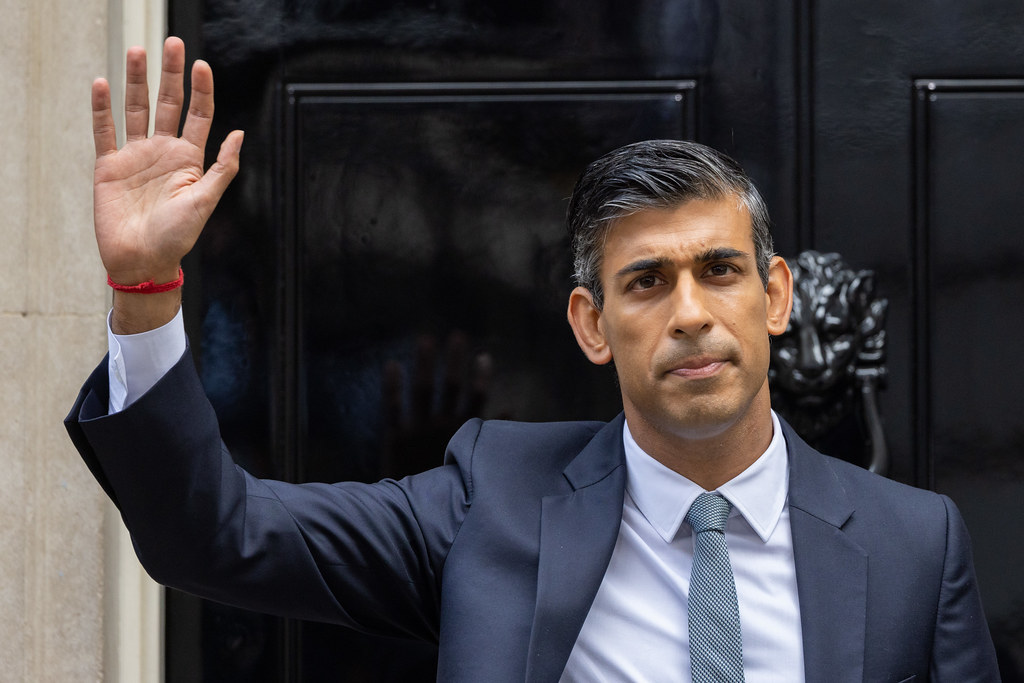Rishi Sunak has become the first non-white prime minister in British history. Sunak is one of the wealthiest people in the U.K. – and at age 42, the youngest PM in 200 years. The former banker and finance minister has taken the reins of a country reeling from economic and political trauma, picking up where Liz Truss – who resigned after six weeks – left off.
Caroline Ritter, a historian of modern Britain and a professor at Texas State University, joined the Texas Standard to explain the turmoil and why Texans should be paying attention.
This transcript has been edited lightly for clarity:
Texas Standard: What a tumultuous time in the U.K.: the death of the Queen, three prime ministers in two months, an economy that’s now roiled by recession and sinking markets. Although I understand that now that Sunak has taken power as PM, the markets are stabilizing somewhat. He’s definitely got his work cut out for him, and that seems like a British understatement almost.
Caroline Ritter: It absolutely does, and as you said, the past few months have been just sort of absolutely one thing after another, and so no moment to catch your breath or figure out what’s happened. And the markets responded to that by making Britain’s borrowing costs much, much higher, thus really bringing much higher bills every month to millions of British families.
You’re talking about under Liz Truss and her policies, which garnered a lot of attention worldwide?
Yes, so the outgoing prime minister, when she was going through the equivalent of their primary system to become the next leader of the party, she made some very big promises in terms of huge tax cuts, particularly for the larger income earners and for corporations in Britain. But once she took office as prime minister and tried to enact those really radical kind of economic change, that was when it became very quickly apparent that the markets were not with her, the population was not with her, and even her own party was not with her for that large of a change all at once.
A lot of drama has unfolded now. Is there any reason to believe that Sunak, as he takes over at 10 Downing Street, will continue to be as solid an ally as Truss – and of course, before Truss, Boris Johnson?
During the past several Prime Ministers, the United States has continued to make it clear that the so-called special relationship between the United States and the United Kingdom is intact. There’s no reason to think that that won’t be the case moving forward with this new prime minister.
Of course, I think a lot of people are concerned about just how much he’s going to be able to coordinate with Washington against Russia in its war with Ukraine. But there doesn’t seem to be any light in the space between the two countries, from what you can tell?
From so far, that’s certainly the case – that Rishi Sunak, upon coming into power, has made clear he is just as committed to supporting Ukrainians and to therefore supporting what the United States has been saying in terms of the war that Putin has caused in Ukraine.
Is there anything that you believe Texans perhaps need to be paying special attention to right now with this change in British leadership? I mean, obviously, as energy capital and with energy being a key issue as we move toward winter and with the war in Ukraine going on, do you see anything that should be of special note to Texas listeners?
I think that it might be tempting to think of what’s going on in the U.K. as something far away and, you know, not related to us sitting here in the United States, but that would be a mistake because both the tax promises that I spoke of, of Liz Truss, as well as the real kind of looming economic crisis, the combination of higher energy prices, inflation – those are all common problems for either a family in the United Kingdom or a family in the United States. And so paying attention to what’s happening in Britain in the next few weeks and months is going to be really important.















